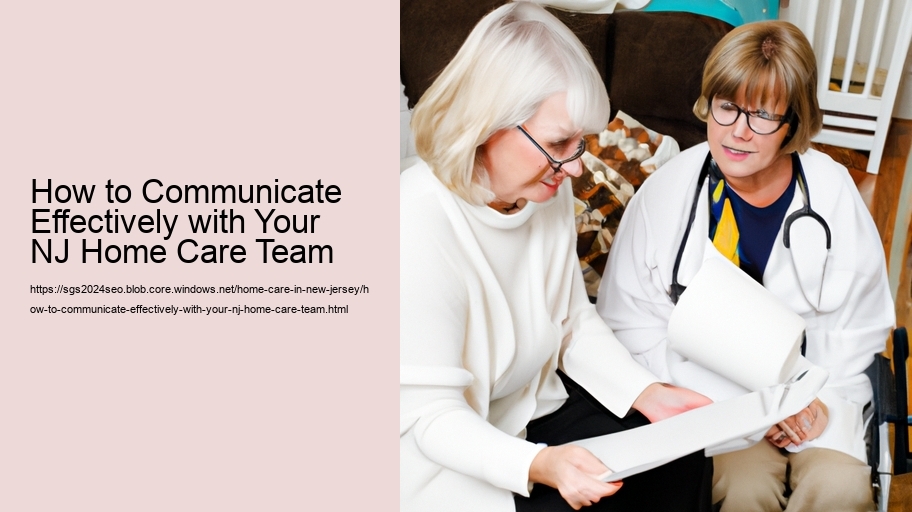Effective communication is a cornerstone of any successful relationship, and this is particularly true when it comes to interacting with your New Jersey home care team. How to Understand Licensing Requirements for NJ Home Care Providers . Whether you are receiving care or are responsible for a loved one who is, fostering open and clear communication with your home care providers is essential to ensuring that care is administered efficiently and compassionately. This essay will explore several strategies to enhance communication with your NJ home care team, emphasizing the importance of clarity, respect, and collaboration.
First and foremost, clarity is crucial in communication. When discussing care plans, medications, or any other aspect of the caregiving process, make sure to express your thoughts and concerns clearly and concisely. It can be helpful to prepare a list of questions or topics you want to discuss beforehand. This ensures that you cover all necessary points and helps prevent misunderstandings. Additionally, encourage your home care team to communicate with you in the same clear manner. If a member of the team uses medical jargon or terms that are unfamiliar, do not hesitate to ask for clarification. Understanding the specifics of your care plan is vital for effective collaboration and peace of mind.
Respect is another integral component of effective communication. Treat your home care team with the same courtesy and consideration that you expect from them. Recognize that they are professionals with expertise and experience in providing care. Listening actively to their suggestions and feedback not only fosters mutual respect but also allows for a more productive dialogue. If disagreements arise, approach them with an open mind and a willingness to find common ground. Remember that the goal is to work together to provide the best possible care.
Active listening is a skill that can greatly enhance communication. This involves not just hearing the words being spoken, but also understanding the emotions and intentions behind them. Show engagement by maintaining eye contact, nodding, and providing verbal affirmations like "I see" or "I understand." Reflecting back what you have heard by summarizing or paraphrasing can also demonstrate that you are truly listening and value the input of your home care team. This practice can build trust and rapport, making it easier to address any concerns or changes in the care plan.
Regularly scheduled meetings or check-ins can help maintain open lines of communication. Whether these are formal meetings or informal chats, having a set time to discuss progress, concerns, or changes can keep everyone on the same page. These meetings provide an opportunity to address any issues before they escalate and to celebrate successes, reinforcing a positive working relationship.
Technology can be a valuable tool in enhancing communication with your NJ home care team. Utilize digital platforms for scheduling, sharing updates, or even virtual meetings if necessary. This ensures that all parties have access to the same information and can communicate efficiently. However, be mindful of maintaining personal interactions, as these are key to building a strong, trusting relationship.
Lastly, collaboration is the ultimate goal of communication with your home care team. View them as partners in the caregiving process, and involve them in decision-making whenever possible. Encouraging their input and respecting their expertise can lead to more effective and comprehensive care. By working together, you can develop a care plan that meets the needs of the care recipient and aligns with the family's values and expectations.
In conclusion, effective communication with your NJ home care team is essential for ensuring high-quality care. By prioritizing clarity, respect, active listening, regular check-ins, and collaboration, you can build a strong partnership with your caregivers. This, in turn, contributes to a more positive and supportive caregiving experience for everyone involved.

